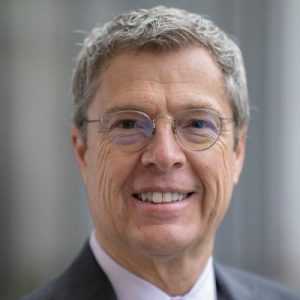
Brett G. Scharffs is the Rex E. Lee Chair, Professor of Law, and the Director of the International Center for Law and Religion Studies, J. Reuben Clark Law School, Brigham Young University
Seng Mai Aung is a Program Officer for Myanmar at the Institute for Global Engagement
Background

Myanmar is, and for several years has been, included on the United States Commission for International Religious Freedom Annual Report’s “blacklist” as a Country of Particular Concern. In 2012, an incident in Rakhine State occurred between Rakhine Buddhists and Muslims, escalating into nationwide religious conflicts between different faith groups. Then came the rise of the Buddhist Nationalist Group, Ma Ba Tha also known as the Association for Protection of Race and Religion. This Ma-Ba Tha movement promoted fear of being invaded by foreign religions and influence along with damaging relations between other religious groups. Social media played an important role in spreading false news and hate speech and further dividing people of different faiths.
A reconciling peacebuilding effort was introduced—the religion and rule of law training program—to assist Myanmar in promoting religious freedom. In 2015, the Institute for Global Engagement in partnership with the International Center for Law and Religion Studies of Brigham Young University Law School were invited to give the religion and rule of law training in Yangon by local religious leaders providing them with resources, tools, and lessons learned from similar international cases.
Identifying Local Stakeholders
For the successful implementation of the religion and rule of law training programs in specific regions, identifying key stakeholders was the first pressing matter. Due to the sensitivity of the topic and how the subjects of “religion” or “rule of law” are perceived, it was vital to identify key stakeholders who understood the risks and benefits of such programs, recognized the importance of the topics, and were willing to get involved in the process of implementing the program in their city. To identify the stakeholders, it was important to talk to people who knew the area before approaching any stakeholders. It was also essential to approach them humbly and respectfully that included a willingness to listen to their challenges and needs.
Trust Building with Local Stakeholders
Listening to local concerns and needs was the most effective way to show caring along with regular engagement showing consistent concern for local needs. Trust-building is the key in organizing such training programs because of the nature of the topics, how the topics on religion and rule of law are perceived, and the risks of having conflicting opinions on those topics. Only when there is an understanding of the topics’ sensitivity will local partners feel comfortable with the partnership.
Bringing potential local partners to similar programs conducted in neighboring countries so they can see what the training programs are like will help them understand the value of such programs in their countries. It will also give them a deeper understanding of the content of the training program, the kind of partnership and trust that are built, the importance of the scholarship on such topics. It also gives them a better understanding of why the world considers religious freedom seriously, and how the violation of such freedoms impacts the socio-economy of many countries. While potential local partners are in the country, meetings with international experts are organized in both formal and non-formal settings to discuss the content of the training envisioned for Myanmar. Such experience also gives them ownership over the implementation of the program relevant to the context and interests of the country.
Connecting People from Different Backgrounds
The main objective of the training program is to connect people who would not otherwise be together because of religious differences. It is important because religion is considered a separate profession or a subject matter that is outside of other secular matters in Myanmar. It is unusual for religious leaders to sit down and talk with people from different backgrounds such as scholars, activists, lawyers, politicians, legislators, and people from different faith traditions. In the course of training and discussions including break time and lunchtime, they build up friendships and respect for each other. With such friendship and trust, they can explore ways to collaborate. The Religion and Rule of Law training are designed to encourage local participants to take the initiative in solving their problems while providing them with tools and resources they can use.
Development of Training Curriculum
The most unique thing about the curriculum of the Religion and Rule of Law training is that it is developed at the request, input, and guidance of the local partners. Since the training is all about providing resources and tools for local participants, the curriculum development process focuses on serving local interests and needs. Only after agreeing on the topics of the lectures and countries, the organizers begin the invitation process for international faculty. There can be changes due to the availability of the faculty, but all the changes are finalized and approved by the local partners.
Follow Up Programs (Building a Local Network of Stakeholders from Different Regions)
Since connecting people is key to the training program, the organizers begin with casual meetings with previous participants and partners in Yangon and Mandalay. The Religion and Rule of Law programs are held annually or every two years depending on the political situation or regional partnerships. Organizers take the opportunity of using international faculty present to organize informal get-togethers for meeting with training alumni, previous partners, and local faculty. Such meetings are the bridge to re-connect with people who have lost touch with each other and to share updates and collaborations going on among alumni. It also continues relationships with international faculty, reminding the alumni that international faculty are willing to help provide resources and expertise for work in promoting religious freedom and religious peacebuilding.
Challenges
There were many challenges implementing a successful Religion and Rule of Law training program:
First, it takes time to identify local stakeholders and understand the dynamics of local relationships. It is important to understand the context and approach of different stakeholders while trying to bring together people from different faiths and professions. It takes time to approach each stakeholder relevant to their interests. It takes time to build trust with them through frequent visits and discussions. Only when trust exists can organizers move forward in introducing the content of the training.
Second, due to the sensitivity of the training contents, local partners are acquainted with how the contents are to be conducted in different countries. Without exposure to how the training is conducted in a country with a similar political climate, it is difficult for partners to predict the risks of implementing such a sensitive program in their own country. Organizers must care deeply about the consequences and risks if the program goes awry and be assured that the approach and content will work well in other countries with similar situations.
Third, it is challenging to hold training longer than three to five days in Myanmar especially with participants from different backgrounds because they all are leaders of their communities and have other important commitments. The Religion and Rule of Law training programs last about a week to ten days, designed as an intensive graduate course. However, the quality of the training and the example of both international and local faculty lead participants to stay.
Key principles:
Over the last twenty years, the International Center for Law and Religion Studies has participated in certificate training programs on religion and the rule of law in a variety of challenging contexts, including China, Vietnam, Indonesia (focused on sharia and human rights), Laos, Myanmar (with five training programs over the past five years), Nigeria, and an upcoming program scheduled in Uzbekistan. The Center has also organized an advanced Young Scholar’s Fellowship on religion and the rule of law at Oxford University, bringing together young scholars from around the world to learn how to teach a comparative and international law class on law and religion, and engage in intensive writing tutorials with legal writing professors who help participants publish English-language scholarly articles.
Over the years we have identified a set of principles, or rules of thumb, that guide our efforts. For the sake of brevity and clarity, we’ve tried to distill these into a few basic guidelines:
- Always work in partnership with high-quality international and local partners and stakeholders. Having the right partners is the single most important ingredient for success.
- Our work lies at the intersection of law and religion. This enables us to address sensitive and sometimes emotionally fraught issues through the analytical lens of the law, which encourages pragmatic problem-solving approaches that easily draw upon perspectives and experiences of each other. We have found that “religion and the rule of law” is a good framework.
- Strive to bring to bear international law and comparative law perspectives. Rather than addressing issues exclusively from the perspective of the local legal system, or an American law perspective, it is helpful to bring to light other perspectives. This fosters an atmosphere of mutual exchange and learning rather than “instruction” from one system to another.
- Approach the topic as a set of shared problems with a variety of approaches and solutions rather than a single solution. The key idea is that we can all learn something, perhaps positive perhaps negative, from each other’s approaches and experiences.
- Bring together experts from a variety of backgrounds and legal systems, including those that are of particular interest to the host groups. In our training programs, we typically include experts from 8-12 different countries. Addressing common themes from a variety of perspectives is very constructive.
- Include local experts and perspectives, rather than just relying upon foreign or outside perspectives. We typically include domestic experts in thirty to fifty percent of the teaching sessions.
- Realize that as international and comparative law scholars we have something important to share, but we are not the genuine experts on local issues and conditions.
- Ongoing, sustained engagement is more likely to make a difference than a single large and dramatic engagement. Usually, programs build and improve over time as relationships of partnership and trust are established and sustained.
- Provide plenty of time for Q&A and discussion. This is the best place to address local issues and challenges. Usually, the local participants will bring these up and will be more receptive to outside perspectives if you are responding to their concerns rather than just offering criticism.
- Make sure you invest in quality interpretation. The value of the teaching is only as high as the quality of the translation. We usually use sequential interpretation when large linguistic divides exist, since this provides the highest quality interpretation. The tradeoff is that you can only cover half as much material in a given set of times.
- Powerpoints and visuals can be quite helpful in training and instruction settings, especially if it has been translated into the local language, and if it covers technical information.
- Local partners and participants should be involved in selecting the topics to be covered in training programs. We usually provide a “menu” of possible topics, and also ask for suggestions for topics of particular interest.
- An instinct to listen carefully, and attitudes of humility are very important in international training settings. We find that if we come in a good faith effort to share ideas, perspectives, and even best practices, as well as credible and informed information about legal standards, this goes a long way towards creating an environment for collaboration and learning.
